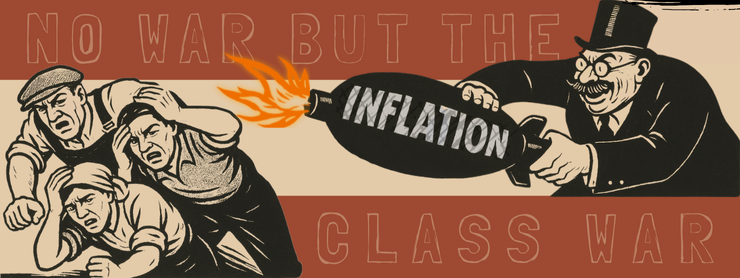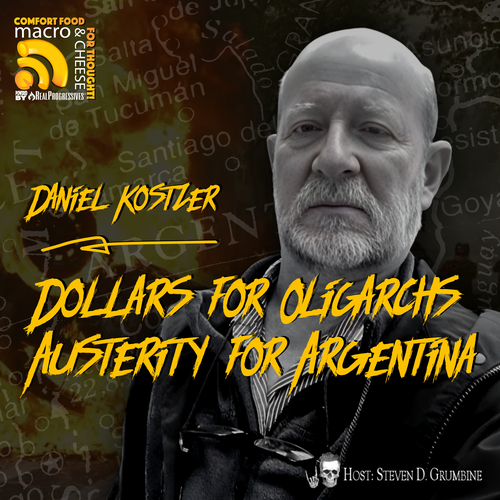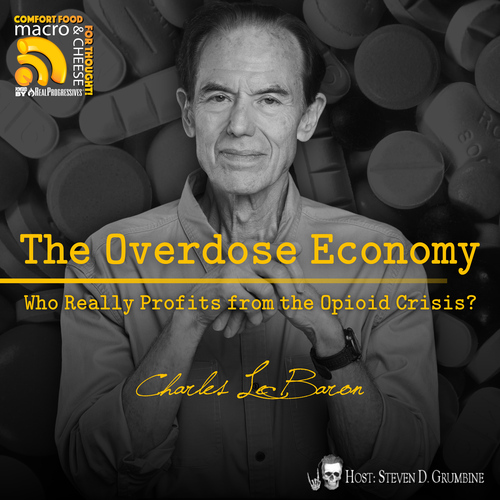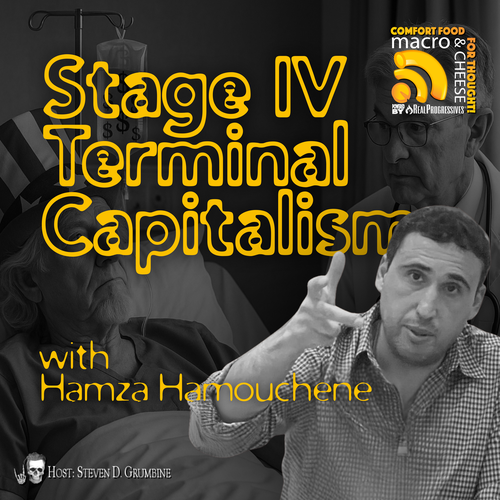Episode 262 – How Are We Going to Pay for It? with Geoff Ginter, Rohan Grey, and Yeva Nersisyan
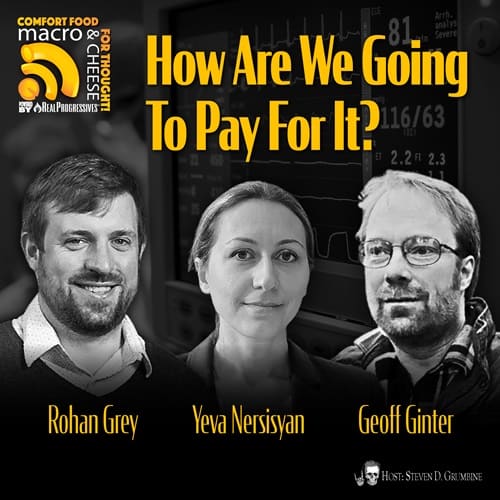
FOLLOW THE SHOW
A panel on MMT’s answer to the question “how will we pay for Medicare for All?” Geoff Ginter, activist and healthcare worker; Yeva Nersisyan, an associate professor of economics; Rohan Grey, an assistant professor of Law.
“…the question of how to pay for it is a very complicated question but has much less to do with money than it does to do with social structure and industrial structure. And the quicker we can get away from centering the taxpayer as the goose that holds the golden egg money and more towards the questions of labor and industrial structure that are really going to affect how we provide healthcare, I think we’re going to be in a better place.”
~Rohan Grey
In 2022, Real Progressives helped our coalition partners, March for Medicare for All, organize a three-day educational summit on the healthcare crisis in the US. This week’s episode is from the panel we put together on paying for national improved Medicare for All, featuring Geoff Ginter, Yeva Nersisyan, and Rohan Grey.
The panelists discuss:
- The meaning of currency user vs currency creator
- The money story and order of operations
- Financial restraints vs resource constraints
- The importance of deficit spending
- Private vs public investment and inflationary constraints
- Potential impact of policies on the economy
- The truth about the so-called national debt
Specific to Medicare for All, they address the problem of transitioning workers out of administrative jobs in the insurance industry. They explain why Medicare for All is likely to be deflationary rather than inflationary. And they look to history to suggest ways of attracting healthcare workers to underserved locations.
Geoffrey Ginter is a New Jersey based certified medical assistant, activist, and MMT evangelist.
Yeva Nersisyan is an associate professor of economics at Franklin and Marshall College and a research scholar at the Levy Economics Institute at Bard College.
Rohan Grey is an Assistant Professor of Law at Willamette University and the founder and president of the Modern Money Network. MintTheCoin.org
@rohangrey on Twitter
The original broadcast, including an auto-generated transcript, is available on our YouTube channel: https://youtu.be/DGd9uW6Nk_s?si=QdkYVHIVwRQb2Ubw
“The government doesn’t want dollars,” Mosler explained. “It wants something else.” “What does it want?” I asked. “It wants to provision itself,” he replied. “The tax isn’t there to raise money. It’s there to get people working and producing things for the government.”
~Stephanie Kelton, The Deficit Myth: Modern Monetary Theory and the Birth of the People’s Economy
GUEST BIOS
Yeva Nersisyan
an associate professor of economics at Franklin and Marshall College in Lancaster, PA, and a research scholar at the Levy Economics Institute at Bard College. She received her B.A. in economics from Yerevan State University in Armenia, and her M.A. and Ph.D. in economics and mathematics from the University of Missouri-Kansas City. She is a macroeconomist working in the Modern Money Theory, Post-Keynesian, and Institutionalist traditions. Her research interests include banking and financial instability, and fiscal and monetary theory and policy. She has published a number of papers on the topics of shadow banking, fiscal policy, government deficits and debt, and the Green New Deal.
https://www.levyinstitute.org/scholars/yeva-nersisyan
Rohan Gray
an Assistant Professor of Law at Willamette University and author whose research focuses on the design and regulation of digital fiat currency. He is the President of the Modern Money Network, the Research Director of the Digital Fiat Currency Institute, and a consultant to the International Telecommunications Union’s Focus Group on Digital Currency.
https://modernmoneynetwork.org/
https://positivemoney.org/rohan-grey/
Geoffrey Ginter is a New Jersey based certified medical assistant, activist, and MMT evangelist.
https://www.linkedin.com/in/geoffreyginter
https://youtu.be/TrJUYkccCXg?si=mz5YYVt9KYtnCDvC
PEOPLE MENTIONED
Paul Ryan
is a former member of the United States House of Representatives with the Republican Party serving Wisconsin’s 1st District.
https://www.britannica.com/biography/Paul-Ryan
Fadhel Kaboub
is an Associate Professor of economics at Denison University, the President of the Global Institute for Sustainable Prosperity, and is currently working with Power Shift Africa in Nairobi, Kenya.
Before settling at Denison in 2008, Dr. Kaboub taught at Simon’s Rock College of Bard and at Drew University where he also directed the Wall Street Semester Program. He has held research affiliations with the Levy Economics Institute, the Economic Research Forum in Egypt, the John F. Kennedy School of Government at Harvard University, and the Center for Full Employment and Price Stability at the University of Missouri, Kansas City (UMKC).
Stephanie Kelton
is an economist and has worked in both academia and politics. She is a leading authority on Modern Monetary Theory and is considered one of the most important voices influencing the policy debate today.
Randy Wray
L. Randall Wray is a Professor of Economics at the Levy Economics Institute of Bard College and is one of the developers of Modern Monetary Theory.
https://www.levyinstitute.org/scholars/l-randall-wray
Scott Fullwiler
is assistant professor of economics and James A. Leach chair in banking and monetary economics at Wartburg College, Waverly, Iowa, where he teaches finance, banking, and macroeconomics. He is also a research associate at the Center for Full Employment and Price Stability, University of Missouri–Kansas City. His research interests are financial markets, monetary operations, and macroeconomic policy.
https://shss.umkc.edu/profiles/economics/scott-fullwiler.html
Larry Summers
Lawrence H. Summers is the Charles W. Eliot University Professor and President Emeritus at Harvard University. He served as the 71st Secretary of the Treasury for President Clinton and the Director of the National Economic Council for President Obama.
https://www.hks.harvard.edu/faculty/lawrence-h-summers
Paul Krugman
is an American economist.
https://web.mit.edu/krugman/www/
“There is nothing to prevent the federal government from creating as much money as it wants and paying it to someone. The question is how do you set up a system which assures the real assets are created which those benefits are employed to purchase?”
Alan Greenspan, 2005 Congressional Hearing
INSTITUTIONS / ORGANIZATIONS
March for Medicare for All (M4M4ALL)
is a decentralized, grassroots, volunteer, nonpartisan group of individuals fighting for national, improved Medicare for All.
Federal Reserve
The Federal Reserve System is the central bank of the United States. Founded by an act of Congress in 1913, the Federal Reserve’s primary purpose was to enhance the stability of the American banking system.
https://www.federalreservehistory.org/essays/federal-reserve-history
U.S. Treasury
The United States Department of the Treasury’s stated mission is to maintain a strong economy and create economic and job opportunities by promoting the conditions that enable economic growth and stability at home and abroad, strengthen national security by combating threats and protecting the integrity of the financial system, and manage the U.S. Government’s finances and resources effectively.
National Institute of Science (NIS)
National Institutes of Health (NIH)
Levy Economics Institute
founded at Bard College in 1986, The Levy Institute is a nonprofit, nonpartisan, public policy research organization independent of political affiliation encouraging diversity of opinion in the examination of economic policy.
https://www.levyinstitute.org/about/
Organization of the Petroleum Exporting Countries (OPEC)
Elsevier
is a Dutch academic publishing company specializing in scientific, technical, and medical content. Its products include journals such as The Lancet, Cell, and the ScienceDirect.
https://en.m.wikipedia.org/wiki/Elsevier
https://www.elsevier.com/about
EVENTS
Yellow Vests Protests
are a series of populist, grassroots weekly protests in France that began on 17 November 2018. At first the protestors advocated economic justice, later they began calling for institutional political reforms.
https://en.wikipedia.org/wiki/Yellow_vests_protests
Build Back Better Plan
was a legislative framework proposed by U.S. president Joe Biden between 2020 and 2021. Generally viewed as ambitious in size and scope, it sought the largest nationwide public investment in social, infrastructural, and environmental programs since the 1930s Great Depression-era policies of the New Deal.
https://en.wikipedia.org/wiki/Build_Back_Better_Plan#
CONCEPTS
Modern Monetary Theory (MMT)
is a heterodox macroeconomic supposition that asserts that monetarily sovereign countries (such as the U.S., U.K., Japan, and Canada) which spend, tax, and borrow in a fiat currency that they fully control, are not operationally constrained by revenues when it comes to federal government spending.
Put simply, modern monetary theory decrees that such governments do not rely on taxes or borrowing for spending since they can issue as much money as they need and are the monopoly issuers of that currency. Since their budgets aren’t like a regular household’s, their policies should not be shaped by fears of a rising national debt, but rather by price inflation.
https://www.investopedia.com/modern-monetary-theory-mmt-4588060
https://gimms.org.uk/fact-sheets/macroeconomics/
Modern Money Primer by L. Randall Wray
https://realprogressives.org/mmt-primer/
Federal Job Guarantee
The job guarantee is a federal government program to provide a good job to every person who wants one. The government becoming, in effect, the Employer of Last Resort.
The job guarantee is a long-pursued goal of the American progressive tradition. In the 1940s, labor unions in the Congress of Industrial Organizations (CIO) demanded a job guarantee and Franklin D. Roosevelt supported the right to a job in his never realized “Second Bill of Rights”. Later, the 1963 March on Washington demanded a jobs guarantee alongside civil rights, understanding that economic justice was a core component of the fight for racial justice.
https://www.sunrisemovement.org/theory-of-change/what-is-a-federal-jobs-guarantee/
https://www.currentaffairs.org/2021/05/pavlina-tcherneva-on-mmt-and-the-jobs-guarantee
Federal Job Guarantee Frequently Asked Questions with Pavlina Tcherneva
https://pavlina-tcherneva.net/job-guarantee-faq/
Monetary Agency
The term monetary sovereignty is sometimes used in MMT literature to describe governments that issue their own non-convertible, floating currency. Recognizing that no nation is truly independent or sovereign in an absolute sense in our interconnected world, we prefer to use terms like monetary agency or fiscal capacity. In any case, the key point is that any nation that issues its own currency (e.g. the U.S., Japan, Canada) will generally have more fiscal capacity if it can maintain the following:
-
- Makes no promises to convert its currency to other currencies or gold at a fixed rate.
- Allows the currency to float in foreign exchange.
- Has no (or minimal) debt in other nations’ currencies (or gold).
- Operates a central bank function to manage interest rates and payments.
Countries that do not meet one or more of these criteria are often subject to greater domestic fiscal policy limitations.
https://modernmoneybasics.com/glossary/
Green New Deal
In 2006, a Green New Deal was created by the Green New Deal Task Force as a plan for one hundred percent clean, renewable energy by 2030 utilizing a carbon tax, a jobs guarantee, free college, single-payer healthcare, and a focus on using public programs.
https://en.m.wikipedia.org/wiki/Green_New_Deal
https://berniesanders.com/issues/green-new-deal/
National Debt
is a term that describes the combined total over time of all the net currency that the government has added into the economy since inception. It is normal for most nations to see their money supply increase over time with the growth of population, economy, and trade. The term “debt” dates back to when nations were on fixed exchange rate or gold convertibility arrangements. However, we should now view this as a nation’s base money supply, with government bonds being simply an interest-earning option for the cumulative savings of currency.
https://modernmoneybasics.com/glossary/
Gross Domestic Product (GDP)
is a monetary measure of the market value of all the final goods and services produced and sold in a specific time period by a country or countries.
https://en.wikipedia.org/wiki/Gross_domestic_product
Taxation within a Fiat System
The monetary system that the United States employs is a state money, or fiat, system, and from that framing, the most important purpose of taxes is to create a demand for the state’s money (specifically, for its currency). Further, being the monopoly issuer of its own currency, the state really does not need tax revenue to spend and can never run out of money to pay debts or provision itself so long as it’s spending is denominated in its own currency.
https://realprogressives.org/a-meme-for-money-part-4-the-alternative-tax-meme/
Sectoral Balances
Sectoral analysis is based on the insight that when the government sector has a budget deficit, the non-government sectors (private domestic sector and foreign sector) together must have a surplus, and vice versa. In other words, if the government sector is “borrowing”, that is selling treasury securities (bonds, notes), the other sectors taken together must be “lending”, as in swapping liquid cash for interest paying treasury securities. Within the framework of double entry accounting, what’s occurred is a currency swap: The government’s debt is precisely equal to the private sector’s surplus.
https://en.wikipedia.org/wiki/Sectoral_balances#:
Gaslighting
is a form of psychological abuse in which a person or group causes someone to question their own sanity, memories, or perception of reality. People who experience gaslighting may feel confused, anxious, or as though they cannot trust themselves.
https://www.medicalnewstoday.com/articles/gaslighting#
PUBLICATIONS
The Collapse of SVB Shows Why Monetary Policy is the Wrong Tool to Fight Inflation (Op-Ed Article) by Yeva Nersisyan and L Randall Wray
Price stability and full employment together are possible. That’s what the past tells us. And the way we did it is we set up our institutions not in order to target deficit limits or debt limits or stuff like this. Instead, we used our monetary systems to help everybody to have a nice life.
~Dirk Ehnts, Macro N Cheese Episode 224, “European Union and the Post Pandemic Economy”
Related Podcast Episodes
Related Articles

The SupraState That Saved the Lying Ancap Messiah
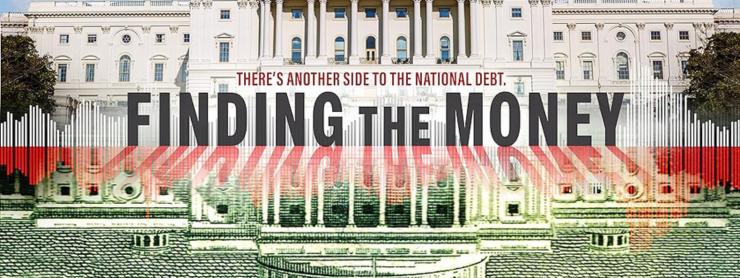
A (belated) Look at Finding the Money
